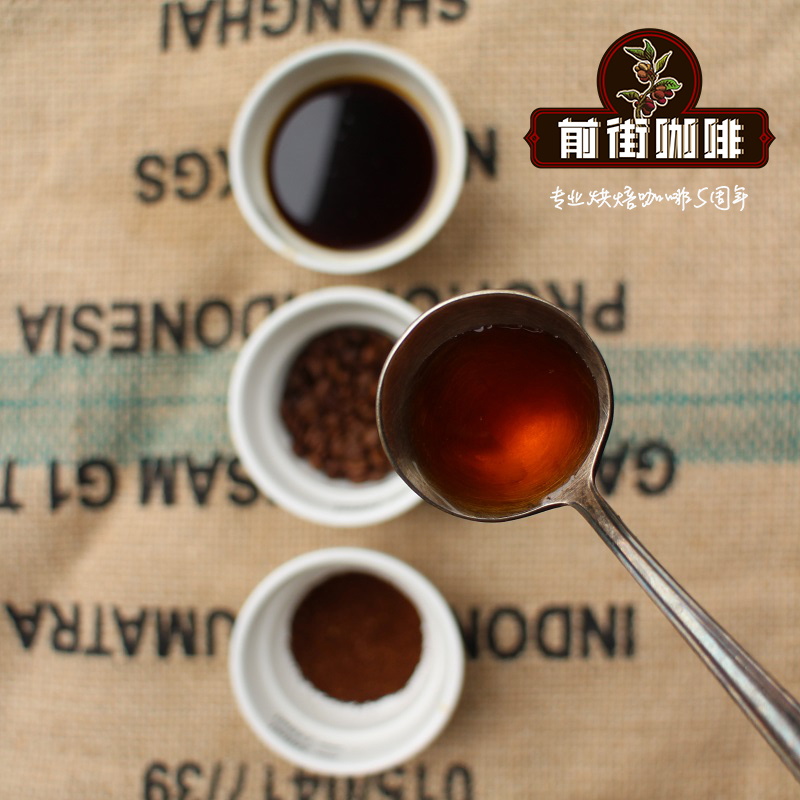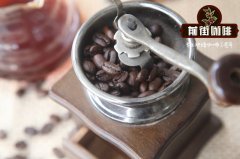How does the coffee from El Salvador taste? How are the raw coffee beans in El Salvador graded?

Coffee taste
El Salvador's bourbon coffee is famous for its sweetness and balance, with pleasant supple acidity and overall harmony.
El Salvador began to grow coffee commercially in the 1850s and became the fourth largest coffee producer in the world in 1880, becoming an important source of economy and a major export crop in El Salvador. But the civil war broke out in the 1980s, which reduced coffee production, and the market was also looking for other sources of coffee exports.
However, the civil war had a positive impact on the quality of coffee in El Salvador, which did not change the original species of coffee into improved varieties with high yield, as in neighboring countries in the same period, but maintained a high proportion of primary bourbon-planted coffee trees in the country. in addition, the volcanic ash-based soil is rich in minerals, which makes the coffee produced excellent taste and great potential, but there is less organic matter in the soil. Therefore, farmers in Saudi Arabia will use the pulp residue of the treated coffee beans or the organic matter under the coffee trees as fertilizers to make up for the lack of organic matter in the soil, so that the planting of coffee trees can produce coffee beans with mixed taste.
El Salvador still sometimes uses the elevation of coffee growth to classify coffee, which has nothing to do with its quality:
Strictly High Grown (SHG) over 1200 m above sea level
High Grown (HG) over 900m above sea level
Central Standard is over 600m above sea level
In 1949, Don Alberto Pacas discovered the bourbon variety Pacas on his estate, and then crossed with Maragogype elephant beans to cultivate the famous Pacamara species.
History
In the early 1990s, guerrilla warfare greatly damaged the country's national economy, reducing coffee production from 3.5 million bags in the early 1970s to 2.5 million bags in 1990-1991. The eastern part of the country was most affected by guerrilla warfare, and many farmers and workers were forced to leave the manor. The shortage of funds has led to a sharp drop in coffee production, from 1200 kg per hectare in the past to less than 900kg per hectare today.
In addition, the government imposed an additional 15% tariff on exported coffee in 1986, that is, an additional 15% in addition to the existing 30% tax. Taxes, together with unfavorable exchange rates, have greatly reduced the export of coffee and the quality of coffee. The government finally realized the great role of coffee in the national economy, such as solving employment, earning foreign exchange and developing agriculture, so it privatized some coffee export industries in 1990, hoping to increase the income rate of coffee in the export market.
In Cuscacbapa, El Salvador, packaged coffee beans are about to be exported to El Salvador. Coffee from El Salvador is a specialty of Central America, where it is light, aromatic, pure and slightly sour. Like Guatemala and Costa Rica, Salvadoran coffee is graded according to altitude, and the higher the altitude, the better the coffee. The best brand is Pipil, the Azbec-Mayan name for coffee, which has been approved by the American Organic Certification Society (Organic CertifiedInstitute of America).
Important Notice :
前街咖啡 FrontStreet Coffee has moved to new addredd:
FrontStreet Coffee Address: 315,Donghua East Road,GuangZhou
Tel:020 38364473
- Prev

What is the flavor of coffee at Kadukan Manor in India? what is the variety of Indian coffee?
Variety: S795 production area: Chikumagaluhr Chikmagalur altitude: 1000m harvest time: December to March refined method: sun treatment reference flavor: dried fruit, jujube, cocoa [Sangamiswa processing plant Sangameshwar] spare no effort to raw bean treatment process and maintain level, preserve high quality coffee varieties and devote to improving coffee quality, using modern planting
- Next

Washing treatment of Rosa Coffee Flavor in Las Nubes Coffee Manor, Costa Rica
Yunwu Manor, which has a history of a hundred years, is still the benchmark for local high-quality coffee. In order to produce good coffee, the manor focuses on many innovative equipment to optimize treatment and various experiments. In addition to planting most of the bourbon coffee trees, the manor also opened up additional areas to cultivate iron pickups and Kenya.
Related
- Does Rose Summer choose Blue, Green or Red? Detailed explanation of Rose Summer Coffee plots and Classification in Panamanian Jade Manor
- What is the difference between the origin, producing area, processing plant, cooperative and manor of coffee beans?
- How fine does the espresso powder fit? how to grind the espresso?
- Sca coffee roasting degree color card coffee roasting degree 8 roasting color values what do you mean?
- The practice of lattes: how to make lattes at home
- Introduction to Indonesian Fine Coffee beans-- Java Coffee producing area of Indonesian Arabica Coffee
- How much will the flavor of light and medium roasted rose summer be expressed? What baking level is rose summer suitable for?
- Introduction to the characteristics of washing, sun-drying or wet-planing coffee commonly used in Mantenin, Indonesia
- Price characteristics of Arabica Coffee Bean Starbucks introduction to Manning Coffee Bean Taste producing area Variety Manor
- What is the authentic Yega flavor? What are the flavor characteristics of the really excellent Yejasuffi coffee beans?

